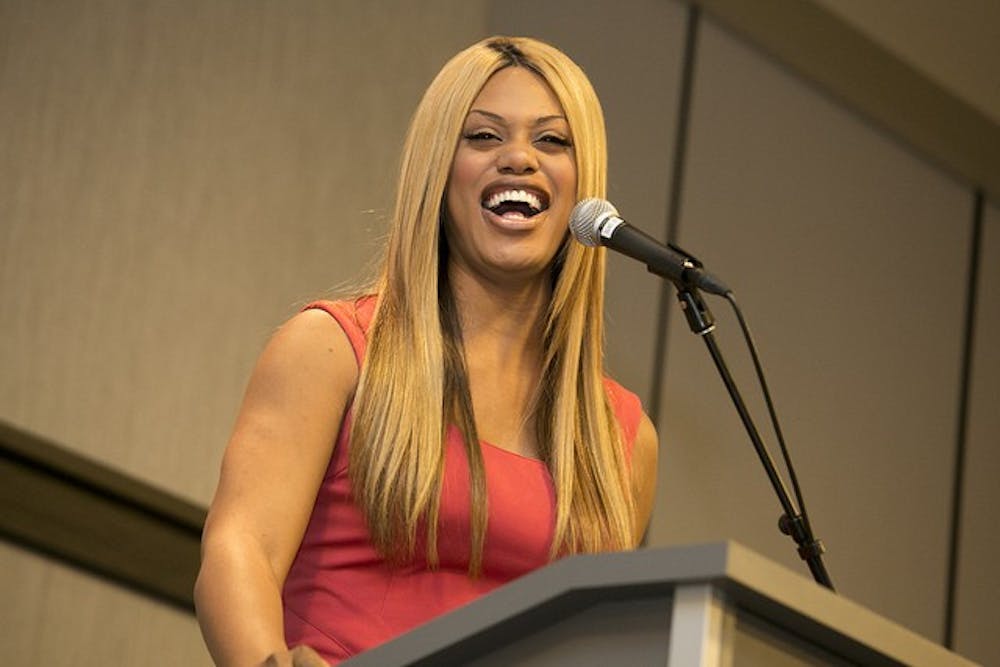“Orange is the New Black” actress and activist Laverne Cox reflected on her life as a transgender woman of color on Feb. 11.
“One is not born a woman, but becomes one,” Cox said at the start of her speech, citing Simone De Beauvoir.
Women’s Initiative sponsored the event and presented Cox as their Women’s History Month Speaker.
By the time the doors to Ward 1 opened at 7 p.m., the line to hear Laverne Cox speak had wrapped three times around the basement and was already out the door.
Cox began by describing what she referred to as “a state of emergency for trans people.” She shared terrifying statistics regarding the exponentially high homicide, unemployment and violence rates for trans people, particularly trans people of color.
Much to Cox’s delight, the audience soon developed a system of snaps for times where they appreciated or agreed with one of her sentiments.
After giving an overview of the subject, she spoke of her own story of growing up in Mobile, Ala.
“Everyone was telling me I was a boy,” she said, “but I knew I was a girl.”
She faced harassment from classmates and teachers, and was not accepted by her mother, a devout member of the Bethel African Methodist Episcopal Church.
After a suicide attempt in the sixth grade, Cox poured herself into achievement, citing Alice Miller’s “The Drama of the Gifted Child,” in which a child repressing trauma feels they must overcompensate in other areas of their life.
This need for achievement allowed her to transfer into the Alabama School of Fine Arts, where she noticed more than ever the implications of the intersections of race, gender, sexuality and class.
After graduating from ASFA, Cox attended Indiana University, but transferred to Marymount College in New York after two years. She said that most of her education came from outside of Marymount and in the New York City club scene, where gender expression was celebrated instead of shamed. She met other trans women who caused her to question her misconceptions and eventually inspired her to begin her own transition.
Six years after she began her transitioning process, Cox was still being “spooked” (spotted as trans) on the street. She recalled experiencing countless instances of street harassment and one assault.
“Calling a transgender woman a man is an act of violence,” she said, also emphasizing the importance of pronouns.
In regards to the recent controversy regarding Janet Mock’s appearance on Piers Morgan, Cox said “Piers Morgan had difficulty hearing outside of his own narrative in order to hear Janet’s,” then, with a smirk, “Wow, that was diplomatic.”
During the following Q&A session, Cox accepted an honorary bid to Gamma Rho Lambda, a multicultural, LGBTQ-inclusive sorority on campus.
By interjecting humor and honesty in a serious discussion about the intersections of misogyny, transphobia and race, Cox delivered a message of positivity and love. Students who originally came to see Sophia from “Orange is the New Black” left with a desire to overcome the patriarchy and resist oppression.
And for that, we give her snaps.
tsackman@theeagleonline.com





